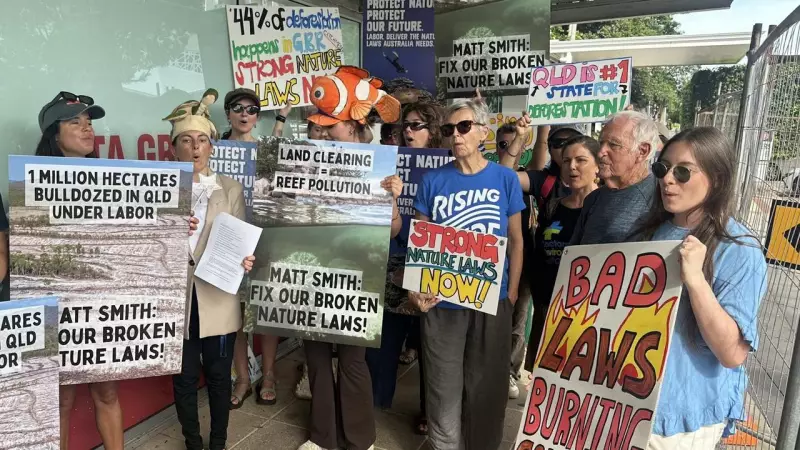
Conservation groups are raising alarm bells over what they describe as major loopholes in proposed new environmental laws that could threaten the Great Barrier Reef's future.
The Cairns and Far North Environment Centre (CAFNEC) has issued a stark warning that the new laws, intended to replace Australia's current environmental protection framework, contain significant gaps that may fail to adequately protect the world heritage-listed natural wonder.
What's Wrong with the New Laws?
According to environmental experts, the proposed legislation contains several critical weaknesses that could undermine conservation efforts. The laws are designed to replace the Environmental Protection and Biodiversity Conservation (EPBC) Act, which has been widely criticized for its failure to halt environmental decline across Australia.
CAFNEC's analysis reveals that the new framework may continue to allow destructive development projects to proceed without proper environmental assessment. The organization points to specific provisions that could enable continued damage to reef ecosystems through inadequate protection measures.
One of the most concerning aspects identified by conservationists is the potential for weakened water quality standards and insufficient controls on land-based pollution that flows into reef waters. Given that agricultural runoff and sediment from coastal development remain major threats to coral health, this represents a significant concern.
Implications for Reef Conservation
The Great Barrier Reef has experienced multiple mass bleaching events in recent years, with climate change and local environmental pressures combining to create unprecedented challenges. Scientists have documented severe coral loss across large sections of the reef system.
Environmental groups argue that now is the time for stronger protection measures, not weaker laws. They emphasize that the reef contributes approximately $6.4 billion annually to the Australian economy and supports around 64,000 jobs, making its protection both an environmental and economic imperative.
CAFNEC is calling for urgent revisions to the proposed legislation before it moves forward. They recommend strengthening provisions related to water quality management, coastal development controls, and climate change adaptation strategies specifically designed to protect marine ecosystems.
Broader Environmental Concerns
The concerns extend beyond just the Great Barrier Reef. Environmental organizations nationwide worry that the proposed laws could set a dangerous precedent for environmental protection across Australia.
Multiple conservation groups have joined CAFNEC in calling for improvements to the legislation. They argue that without substantial amendments, the new laws may fail to address Australia's escalating extinction crisis and ongoing environmental degradation.
The federal government has defended the proposed laws as a significant improvement over current arrangements, but conservation advocates maintain that critical gaps remain that must be addressed to ensure meaningful environmental protection.
As the debate continues, environmental organizations are urging Australians to contact their representatives and voice support for stronger environmental laws that genuinely protect natural treasures like the Great Barrier Reef for future generations.





